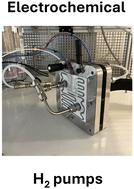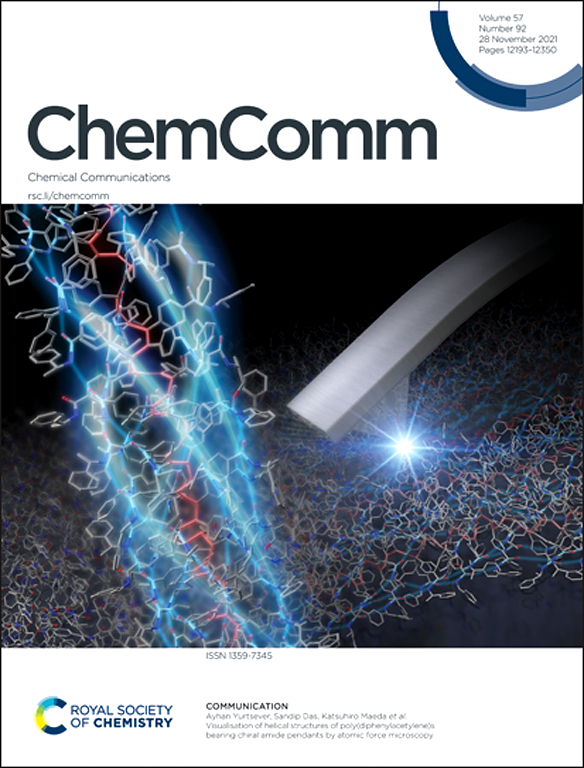Electrochemical hydrogen pumps: a researcher's guide and review
IF 4.2
2区 化学
Q2 CHEMISTRY, MULTIDISCIPLINARY
引用次数: 0
Abstract
Hydrogen is considered an attractive energy vector and an indispensable base chemical for a wide variety of chemical products. As more hydrogen is produced via electrolysis, finding ways to store the H2 will become increasingly important due to the low volumetric energy density at ambient pressure. While high pressure storage is favoured for many applications, compressing hydrogen poses distinct challenges due to its low density and high diffusivity. Electrochemical hydrogen pumps (EHP) present a solution to this challenge by efficiently compressing hydrogen. Hydrogen compression is more efficient using electrochemical hydrogen pumps than conventional mechanical compressors because they operate through isothermal rather than adiabatic compression. Additionally, they can be used to separate hydrogen from gas mixtures, for example from natural gas pipelines supplemented with hydrogen, creating the possibility of integrating them with existing energy transport infrastructure. This paper summarizes recent progress in electrochemical hydrogen pump research and presents a case study on an EHP test cell, test rig and a measurement guide to advance research in this field. Although electrochemical hydrogen pumps offer many advantages, shortcomings remain, including the lack of standardized measurement conditions and procedures, as well as a limited understanding of degradation mechanisms. This review aims to provide insights into these issues and discuss future directions for electrochemical hydrogen pump research.

电化学氢泵:研究人员指南与综述。
氢被认为是一种有吸引力的能量载体,是各种化学产品不可缺少的基础化学品。随着越来越多的氢气通过电解产生,由于环境压力下的低体积能量密度,寻找储存氢气的方法将变得越来越重要。虽然高压储存在许多应用中都很受欢迎,但压缩氢气由于其低密度和高扩散性而面临着明显的挑战。电化学氢泵(EHP)通过有效压缩氢提供了解决这一挑战的方法。使用电化学氢泵比传统的机械压缩机更有效地压缩氢,因为它们通过等温压缩而不是绝热压缩进行操作。此外,它们还可以用于从混合气体中分离氢气,例如从补充氢气的天然气管道中分离氢气,从而有可能将它们与现有的能源运输基础设施整合在一起。本文综述了电化学氢泵的最新研究进展,并介绍了电化学氢泵测试单元、测试平台和测量指南的实例,以推动该领域的研究。尽管电化学氢泵提供了许多优点,但缺点仍然存在,包括缺乏标准化的测量条件和程序,以及对降解机制的有限理解。本文综述了电化学氢泵的研究现状,并对今后的研究方向进行了展望。
本文章由计算机程序翻译,如有差异,请以英文原文为准。
求助全文
约1分钟内获得全文
求助全文
来源期刊

Chemical Communications
化学-化学综合
CiteScore
8.60
自引率
4.10%
发文量
2705
审稿时长
1.4 months
期刊介绍:
ChemComm (Chemical Communications) is renowned as the fastest publisher of articles providing information on new avenues of research, drawn from all the world''s major areas of chemical research.
 求助内容:
求助内容: 应助结果提醒方式:
应助结果提醒方式:


